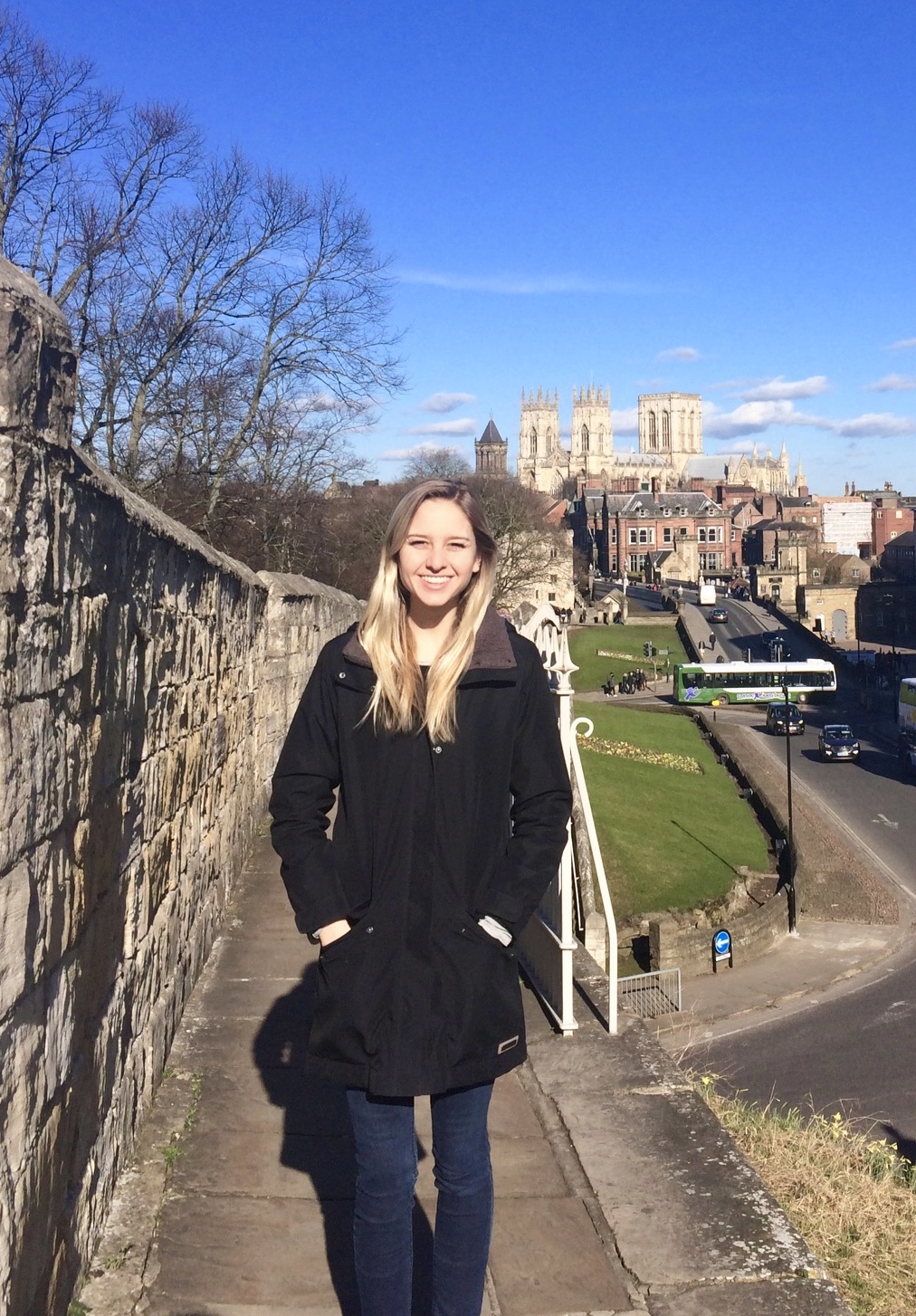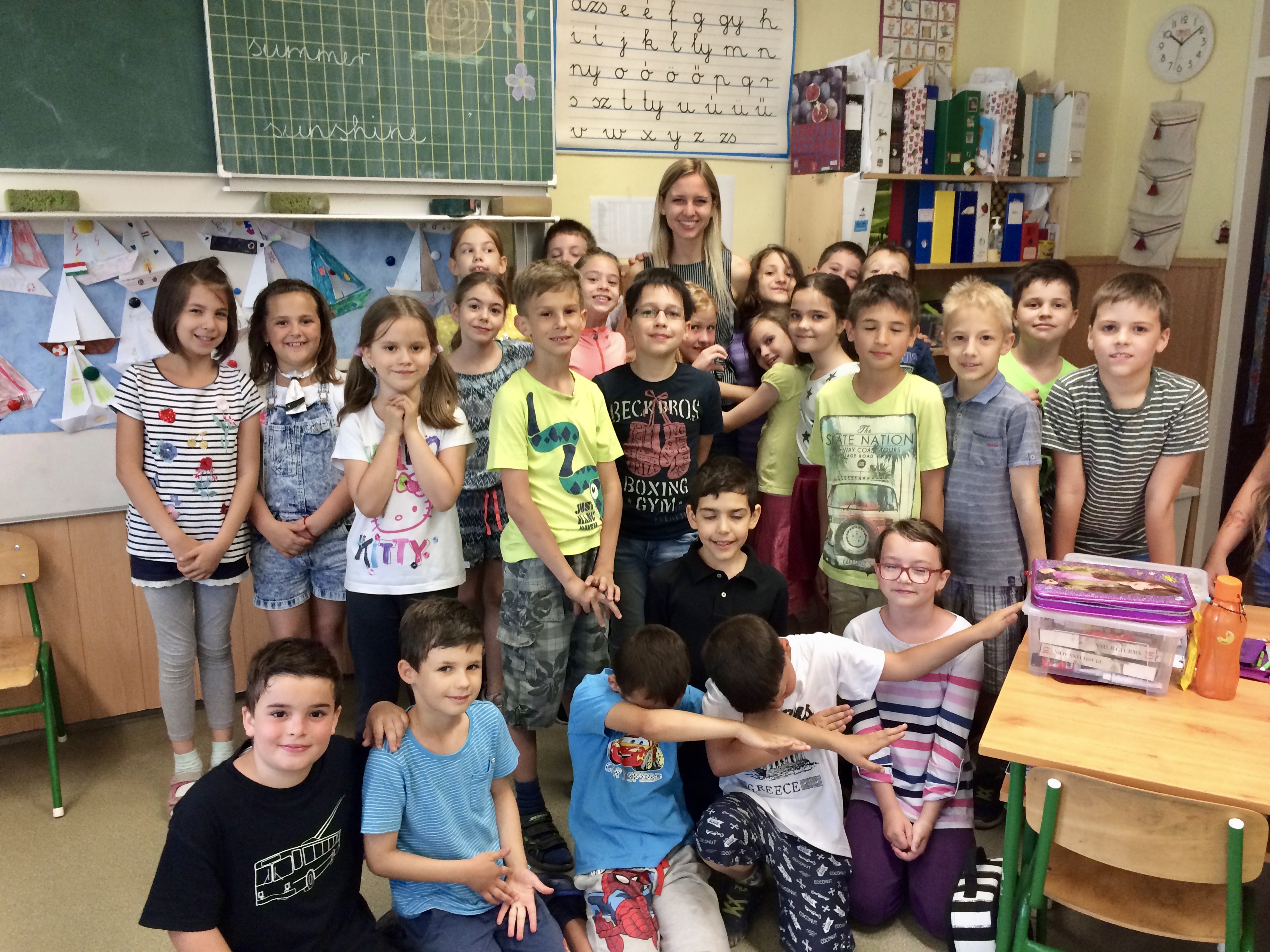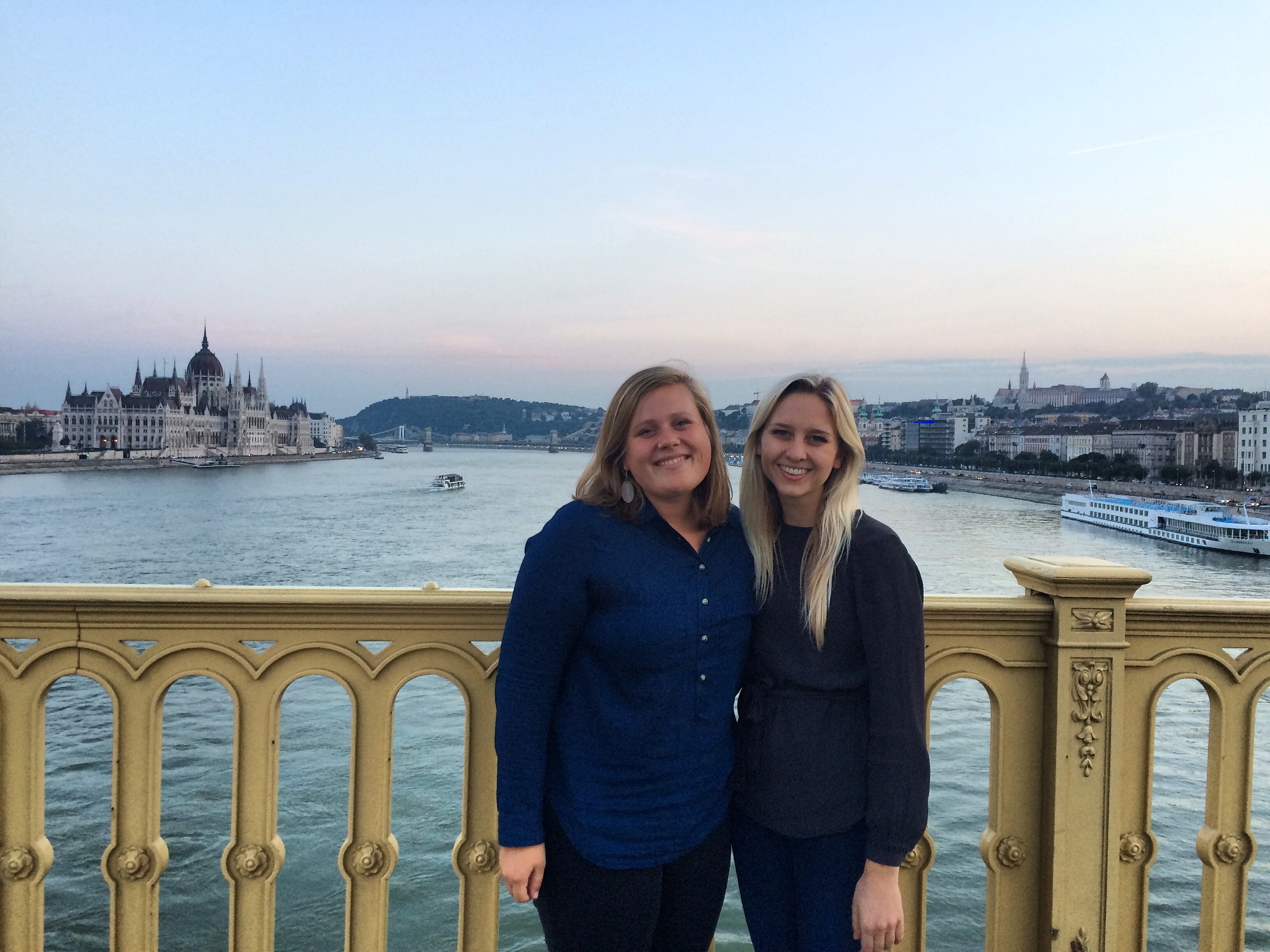Commission for Global Dimensions of Student Development
Tuesday, 19 May 2020 - 3:13pm
By Kate Guichelaar

My first introduction to International Education was when I went to in York, England on a faculty lead semester while at Calvin University.
Unprecedented, uncertain, unsure, unknown, unsettled, and unemployed. Inevitably, some or all of these adjectives have described our feelings, circumstances, or job statuses in the last few months of the pandemic. Out of all these negative “un” prefixed adjectives, I’ve most recently experienced the last.
For the past year, I had been working as a program advisor at a third-party provider, working with students (and their guardians) from the moment they opened an application until they landed in their country of study. It was a job that allowed me to problem solve, collaborate, and contribute to a mission I deeply believed in. And I was good at my job.
When I received the news that the company was significantly decreasing employees. I thought about the students in the middle of the financial aid applications, students trying to navigate the passport and visa application process, students having difficult conversations with their parents about health and safety concerns—from one phone call to the next, I was no longer in a position to help any of my advisees. Below are three things I’m trying (very imperfectly at times) to navigate the Covid-19 pandemic as a now unemployed professional in international education.
Refresh
I have a tendency to jump in to any situation with a “to-do” list and timeline, and, while I know ambiguity and uncertainty are necessary elements in the growth process, I wanted to figure out my next steps as soon as possible. Trying to understand the next steps in the process like mailing in my laptop (I had been working remotely for two weeks), filling for unemployment, and securing medical insurance all seemed incredibly overwhelming in the hours (and days) after being laid off. So, I took a few steps back instead of getting all my next steps in order. I went for a walk, read a few books, cooked some new recipes, watched tv, went on more walks, and video chatted with friends. Taking this time to refresh my mental and physical health helped move me further from those unsettled feelings which had overwhelmed me and allowed me to focus on things that were in my control.
Reevaluate
Having the pause button hit on my work life means I’ve had time to reevaluate what I want in my future job. I’ve been skimming through people’s LinkedIn profiles, paying close attention to the “About” section of their profile. These two-three sentence introductions give great insight into the values they hold and skills they process. I’ve been trying to distill into two or three sentences what exactly I want moving forward in my job search. What about my previous positions challenged and excited me? What skills do I have and what skills am I eager to gain?
The empathy, openness, cross-cultural communication skills, and overall sense of adventure I gained through my own study and teaching abroad experiences shaped me in critical ways both academically and professionally. While I still feel uncertain as to my exact next steps, being able to reevaluate my what I want and where I want to grow has allowed me to appreciate this pause—appreciate that I was able to file for unemployment, that I have a strong support system, and that I there are many more people in the field of higher education who are in my position.
Reach Out
I was surprised by the number of former coworkers, mentors, and supervisors who reached out to me or responded promptly when I reached out to them for advice or assurance. Please know that there are so many people in this field who are willing to help either by being a sounding board or by helping make further connections. Personally, I see hope and light at the end of this pandemic when I’m in community with others: when I listen to or read stories of resilient students making their way home from a cancelled semester abroad, of still employed colleagues working overtime to make sure students are safe and secure, or of students who are already planning to defer their study abroad plans to the Spring or Summer of 2021. I might be a novice in this field, but please include me in your support system—I’m more than willing to message over LinkedIn or email.
Right now, you might be secure in your current position, or maybe you’re not. Maybe you’re employed and worried about the trajectory of international education, maybe you’re confident of a swift bounce back. Maybe you’re unemployed and furiously looking to get back into a career in the field of higher education, maybe you’re ready to move on to another functional area in higher education or something else completely. Whatever position you find yourself in during these uncertain times, I hope you are not being swallowed by all the “un” adjectives our world is facing. Stay safe, stay healthy, stay strong, and please reach out to me if I can help in any way.
Bio of Kate Guichelaar:
After completing a degree in English Linguistics at Calvin University, Kate taught English at a primary school for a year in Budapest, Hungary. Her interest in higher education, student support services, curriculum development, and international education lead her to complete her masters at the University of Michigan. She then worked for a study abroad organization in Chicago as a program advisor for a year and is currently looking for work at a university or non-profit in an academic support and services position.

Happy second graders on the last day of school

The view of Budapest from Margaret Bridge. Kate lived in Óbuda, just north of the city centre

